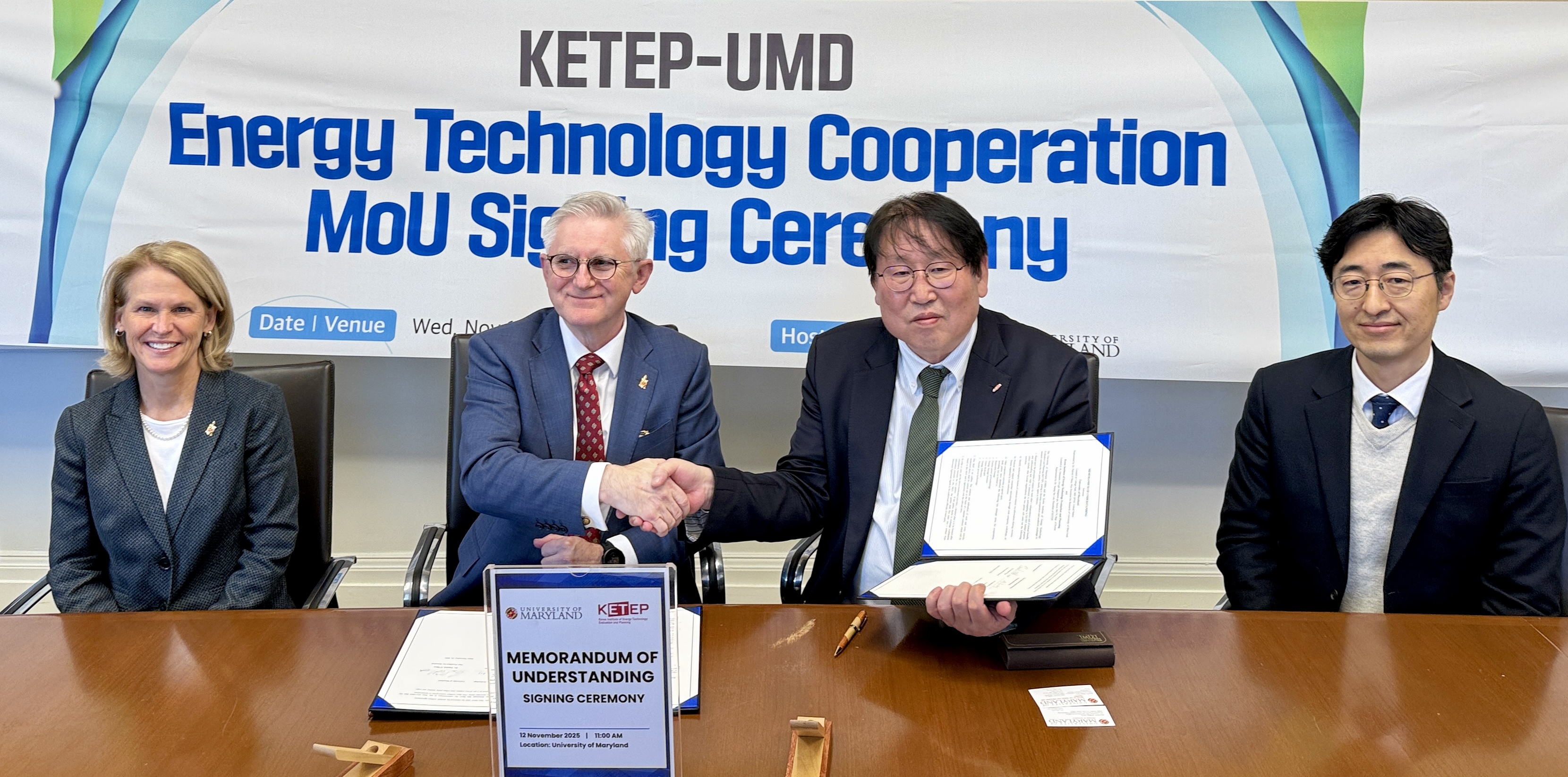News Story
Experts Discuss Consequences of U.S. Oil Dependency
Admiral Skip Bowman (Ret., Nuclear Energy Institute), Adam Siegel (Board Member, The Energy Consensus Group), and Tom Valone (Integrity Research Institute), recently addressed "National Security Consequences of U.S. Oil Dependency" at a special panel hosted by the University of Maryland's American Nuclear Society Student Chapter (ANSSC). The panel was part of a series featuring distinguished guests from the government, military, industry, and research institutions who have been asked to address some of the most pressing energy issues we face.
Video of the entire panel is now available online.
Bowman, the president and chief executive officer at the Nuclear Energy Institute, the nuclear energy industry’s policy organization in Washington, D.C., has dedicated himself to promoting nuclear power as a clean, safe and reliable source of energy to the government, investors, educators, environmentalists, the media and the public. In his keynote address, he focused on the "buts" nuclear energy advocates routinely face: "Nuclear energy sounds like a good idea, but what about safety? —but what about used fuel? —but what about proliferation? —but what about the current lack of infrastructure? —but what about cost?"
Siegel's presentation, "A Holistic View of Energy in Stability, Support, Transition, and Reconstruction (SSTR) Operations," addressed how sustainable energy could contribute to operational effectiveness and benefit civilians with whom the military interacts. Currently, the military pays a substantially higher amount of money than civilians or industry per gallon of gas or kilowatt hour. A gallon of gas for a Humvee, Siegel explained, could be $10 or more because it has to be transported and guarded, and personnel along the way and at its destination must be supplied. "Water heaters and delivery trucks burn up more fuel than the actual shooting," he told the audience. The military's reliance on oil-based fuels and generators has another cost: human lives, since fuel convoys are prime targets for attack. Portable, sustainable energy solutions the military is exploring, such as solar generator kits, could also benefit civilians in refugee camps, war zones and disaster areas buy providing quickly-delivered, renewable energy sources that can be left behind for future use.
Valone's presentation, "The Consequences of U.S. Oil Dependency," described the effects pollution generated from coal, oil and natural gas—which account for 80% of all pollution—have had on the polar ice caps, sea levels, and overall temperature. The situation, he said, is more serious now than it was 20 years ago. "We have been deceived for a decade," he said, about the reality and severity of global warming.
The purpose of the ANSSC events is to increase awareness of the impact alternative energy research and development will have on society and our lives, and to promote interest in the Clark School’s graduate programs in Nuclear Engineering and Energy Systems Engineering.
Published February 25, 2008









